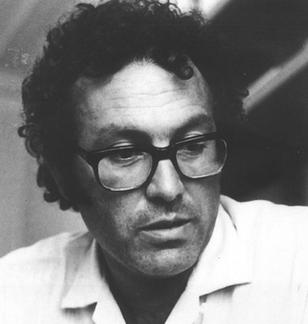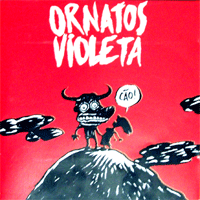Related Research Articles

Porto, also known as Oporto, is the second largest city in Portugal, after Lisbon. It is the capital of the Porto District and one of the Iberian Peninsula's major urban areas. Porto city proper, which is the entire municipality of Porto, is small compared to its metropolitan area, with an estimated population of just 248,769 people in a municipality with only 41.42 km2 (16 sq mi). Porto's metropolitan area has around 1.8 million people (2023) in an area of 2,395 km2 (925 sq mi), making it the second-largest urban area in Portugal. It is recognized as a global city with a Gamma + rating from the Globalization and World Cities Research Network.

Portuguese music includes many different styles and genres, as a result of its history. These can be broadly divided into classical music, traditional/folk music and popular music and all of them have produced internationally successful acts, with the country seeing a recent expansion in musical styles, especially in popular music.

The culture of Portugal designates the cultural practices and traditions of the Portuguese people. It is rooted on the interactions between many different civilizations that inhabited the area during the past millennia. From prehistoric cultures, to its Pre-Roman civilizations, passing through its contacts with the Phoenician-Carthaginian world, the Roman period, the Germanic invasions of the Suebi, Buri and Visigoths, Viking incursions, Sephardic Jewish settlement, and finally, the Moorish Umayyad invasion of Hispania and the subsequent expulsion during the Reconquista, all have influenced the country's culture and history.

José Manuel Cerqueira Afonso dos Santos, known professionally as José Afonso and also popularly known as Zeca Afonso, was a Portuguese singer-songwriter. He is widely regarded as one of the most influential figures in the history of Portugal's folk and protest music scene. His music played a significant role in the resistance against the dictatorial Estado Novo regime, making him an icon in Portugal.

Almada is a city and a municipality in Portugal, located on the southern margin of the Tagus River, on the opposite side of the river from Lisbon. The two cities are connected by the 25 de Abril Bridge. The population of the municipality in 2011 was 174,030, in an area of 70.21 km2. The urbanized core center, the city of Almada proper, had a population of 101,500 in 2001. It makes part of the Lisbon Metropolitan Area.

Pedro Machado Abrunhosa is a Portuguese singer, songwriter, musician and composer. Trained in jazz music, Abrunhosa started his career in the 1980s playing in jazz bands and teaching in music and art schools in Porto. He is a co-founder of the Jazz School of Porto.
Rock music and its subgenres are very popular in Portugal. The history of the Portuguese rock music scene spans several decades.

Jorge Manuel de Abreu Palma is a Portuguese singer and songwriter. A well-known and acclaimed songwriter in Portugal, Palma started his solo career in 1972 and was a busker in several cities abroad before settling back in Portugal in 1982. He achieved success in the late 1980s with songs such as "Deixa-me Rir" and "Frágil", and renewed success in 2007, with the single "Encosta-te a Mim".

Rui Manuel Gaudêncio Veloso is a Portuguese singer-songwriter and musician. Commonly called "The father of Portuguese rock", Veloso was a major figure in the boom of Portuguese rock music in the 1980s. His 1980 debut album Ar de Rock, which includes the hit single "Chico Fininho", is considered a landmark of Portuguese rock. During the 1980s and 1990s, Veloso released numerous other successful singles and albums in Portugal.
GNR is a Portuguese pop rock band formed in Porto in 1980 and currently consists of vocalist Rui Reininho, bassist Jorge Romão and the only remaining founding member drummer Tóli César Machado. The formation of the group, that shares its acronym with the Guarda Nacional Republicana, coincided with the so-called Boom of Portuguese Rock that took place during the eighties, of which GNR are one of the few survivors to this day.

Cão! was the first studio album by Portuguese rock band Ornatos Violeta, released on 15 September 1997 by Polygram. Three singles were released from this album: "Punk Moda Funk", "A Dama do Sinal" and "Mata-me Outra Vez".

Helena Maria de Jesus Águas, known professionally as Lena d'Água, is a Portuguese singer.

Ney de Souza Pereira, known professionally as Ney Matogrosso, is a Brazilian singer who is distinguished for his uncommon countertenor voice. He was ranked by Rolling Stone as the third greatest Latin American singer of all time.

David Fonseca is a Portuguese musician, singer-songwriter, and photographer. As a musician, he plays several instruments, including acoustic guitar and organ. He is recognized for his successful music career as a member of Silence 4 and, since 2003, as a solo artist. He is also responsible for the graphic design of his album covers and the art direction on his video clips. Between 2004 and 2006, he was also part of the Humanos tribute project.

Quinta do Bill is a Portuguese folk rock musical group from Tomar formed in 1987.
Taxi are a Portuguese rock band, one of the most influential and biggest of all time in Portugal. The band originated it the '80s, influenced by ska and the new wave of Police. The band is originally from Oporto, and was formed in 1979 by João Grande, (b.1954) (voice), Henrique Oliveira (b.1957) (guitar), Rodrigo Freitas (drums), and Rui Taborda (bass).

The Voice Portugal is a Portuguese reality singing competition and local version of The Voice, based on the original The Voice of Holland. The series employs a panel of four coaches who critique the artists' performances, and guide their teams of selected artists through the remainder of the season. They also compete to ensure that their act wins the competition, thus making them the winning coach. The original coaching panel consisted of Rui Reininho, Paulo Gonzo, Mia Rose, and the duo Os Anjos. The upcoming coaching panel, for season 12, will feature Sara Correia, Fernando Daniel, Sónia Tavares, and Nininho Vaz Maia. In other seasons Mickael Carreira, Marisa Liz, Anselmo Ralph, Aurea, António Zambujo, Diogo Piçarra, Carolina Deslandes and Dino D'Santiago participated as coaches.
Os Azeitonas are a Portuguese pop rock band from Porto, formed in 2002. Having gone through various formations - a five-member "garage-boysband", a four-member pop-rock group - now as a trio, with members Mario Brandão "Marlon" (vocals), Luísa Barbosa "Nena" (vocals) and João Salcedo "Salsa", the group has released five full-length albums and two DVDs.

The first season of the Portuguese reality talent show A Voz de Portugal premiered on October 29, 2011 on RTP1. The coaching panel consisted in singer-songwriter Paulo Gonzo, rock duo Anjos, YouTube sensation Mia Rose and GNR lead vocalist Rui Reininho. Catarina Furtado was the show host, and Diogo Beja was the season's backstage host, also known as Repórter V.
Rui is a Portuguese male given name, a Japanese unisex name, and a Chinese unisex name component.